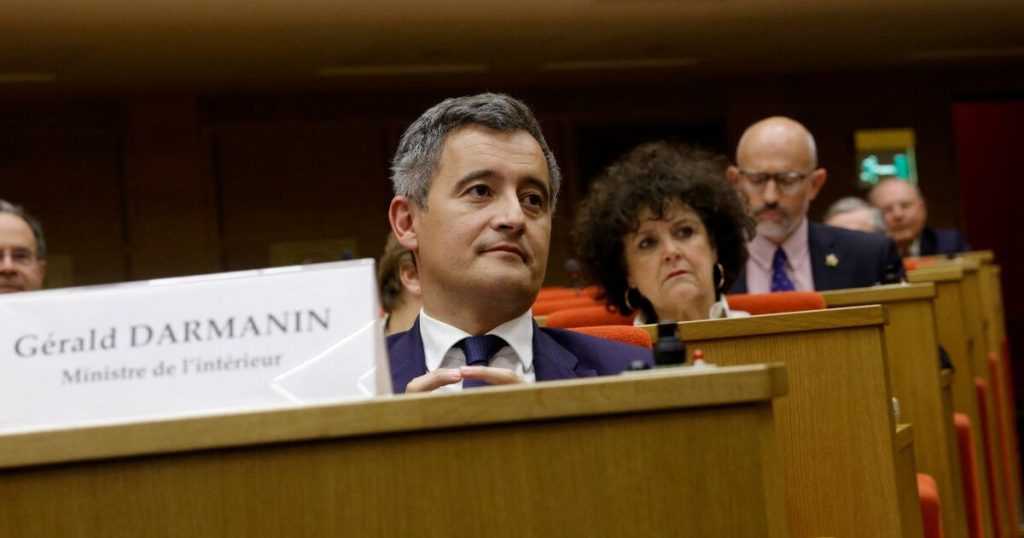The 2022 UEFA Champions League final, a highly anticipated clash between Liverpool and Real Madrid, was marred by chaotic scenes outside the Stade de France in Paris. A delayed kickoff, overcrowded bottlenecks, and the indiscriminate use of tear gas by French police against Liverpool supporters cast a dark shadow over the event. Initially, French authorities, including then-Interior Minister Gérald Darmanin, placed the blame squarely on Liverpool fans, alleging the presence of numerous counterfeit tickets and accusing supporters of arriving late. These claims, however, were later debunked by independent investigations and a French Senate inquiry, revealing a series of critical errors in the planning and execution of security arrangements.
Three years after the incident, Darmanin, now serving as Justice Minister, issued a formal apology to Liverpool supporters, acknowledging the failures of the French authorities in managing the situation. He admitted to relying on “preconceived ideas” and failing to adequately assess the unfolding events on the ground. Darmanin’s apology signifies a significant shift in the official narrative, finally acknowledging the trauma and injustice experienced by Liverpool fans who were wrongly accused and subjected to heavy-handed policing. This admission follows years of campaigning by Liverpool supporters and pressure from independent investigations that exposed the flaws in the initial explanations provided by French authorities.
The chaos that unfolded outside the Stade de France was not simply a matter of inconvenience; it represented a serious threat to the safety and well-being of thousands of football fans. The independent report commissioned to investigate the incident concluded that UEFA, the governing body of European football, bore “primary responsibility” for the near-catastrophic failures in security and crowd management. The report highlighted the dangerous overcrowding and bottlenecks created by the flawed security perimeter and the inadequate number of entry points, which forced fans into confined spaces, creating a potentially lethal crush.
The initial response of UEFA and French authorities was not only inaccurate but also deeply damaging to the reputation of Liverpool supporters. The accusations of widespread ticket fraud and late arrivals served to deflect blame away from the organizational failures and onto the fans themselves. This narrative was quickly amplified by some media outlets, further perpetuating the false image of Liverpool supporters as hooligans and troublemakers. The Senate inquiry, however, categorically rejected these claims, finding no evidence of mass ticket counterfeiting and highlighting the systemic failures in security planning and communication that contributed to the chaotic scenes.
The independent report painted a grim picture of the events leading up to the match, describing a situation that came perilously close to a “mass fatality catastrophe.” The combination of inadequate security measures, poor communication, and the heavy-handed use of tear gas created a highly volatile and dangerous environment for the thousands of fans trapped outside the stadium. The report emphasized the “remarkable” fact that no lives were lost amidst the chaos, a testament to the resilience and composure of the supporters themselves, who, despite facing immense pressure and unwarranted police action, managed to avoid a tragedy.
The apology from Gérald Darmanin, though belated, represents a crucial step towards acknowledging the truth of what happened at the 2022 Champions League final. It marks a recognition of the suffering endured by Liverpool fans, who were not only subjected to dangerous conditions but also unfairly vilified in the aftermath. The incident serves as a stark reminder of the importance of meticulous planning, effective communication, and responsible crowd management in ensuring the safety and security of large sporting events. The lessons learned from the chaos at the Stade de France must be heeded to prevent similar incidents from occurring in the future. The focus must shift from blaming fans to implementing robust security protocols and fostering a culture of accountability within organizing bodies like UEFA and local authorities. The memory of the near-disaster serves as a powerful impetus for change, urging a renewed commitment to prioritizing the safety and well-being of all spectators at major sporting events.














